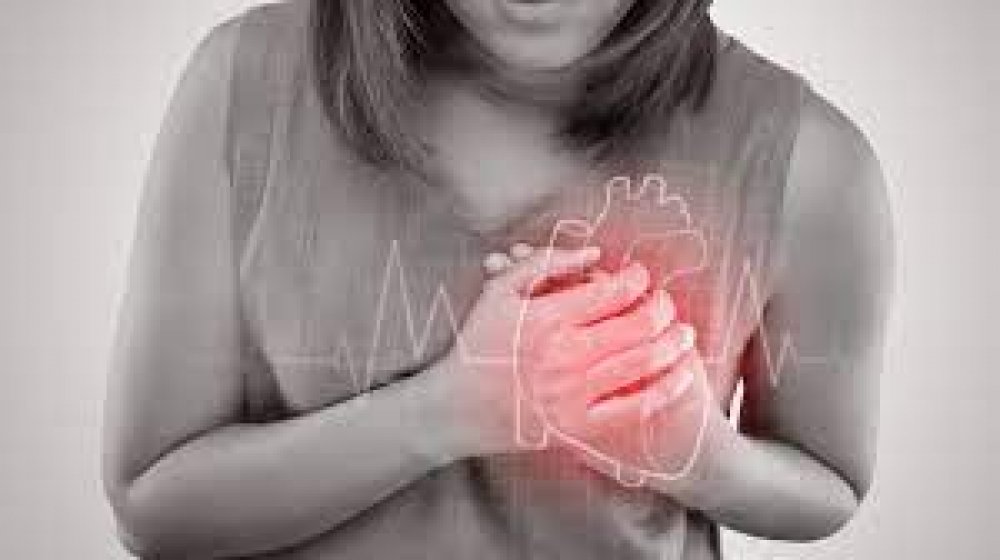5 Things To Know About Cardiac Arrest And Its Preventions

In recent times, particularly since the outbreak of the COVID-19 pandemic, it has been observed that cardiac arrest has become a noticeable cause of medical concern. It is a situation whereby people who appear physically healthy, suddenly slump and die.
What Is Cardiac Arrest?
Cardiac arrest, sometimes called sudden cardiac arrest, means that your heart suddenly stops beating. This cuts off blood flow to the brain and other organs. It’s an emergency and is deadly if not treated immediately.
According to reports, Cardiac arrest became a big issue in Nigeria a few years ago when Moshood Kashimawo Abiola and a former Head of State, Sani Abacha, suddenly died of cardiac arrest in quick succession. Since the 1980s, many other Nigerians have also died of similar cases.
However, while the world is trying its best to curb the COVID-19 pandemic, the recent collapse of a footballer identified as Christian Eriksen trigger the trending issue of Cardiac arrest again.
Ngnews247.com earlier reported that the Danish playmaker collapsed on the pitch during the third game of the 16th European Championship (Euro 2020) game against Finland during the 45th minute of the first half.
Globally, cardiac arrest is a foremost cause of death as it is annually responsible for no less than 7million deaths. An autopsy study from Nigeria found that hypertensive heart disease was the most common cause of sudden cardiac death.
Explaining this, Adeyemi Johnson, a cardiologist, founder, and managing director of First Cardiology Consultants said sudden cardiac death is not the same as a heart attack. A heart attack can lead to sudden cardiac death which occurs when electrical activity in the heart stops functioning.
According to the consultant cardiologist, a heart attack occurs when there is obstruction of blood flow to the heart muscle causing damage to the heart.
“A simple analogy is, look at sudden cardiac death (cardiac arrest) as loss of electrical supply to your water pump. The pump will not work. A heart attack is like damage to your generator from bad diesel. The generator will work but not efficiently and it might even stop and you have no power at all.
“Sudden cardiac death does not usually happen to normal hearts. There is usually an underlying problem that might not have been detected. The most common cause is coronary artery disease (blocked coronary arteries), other causes include heart failure (weak heart muscle), abnormal heart muscle and abnormal electrical activity in the heart.”
He further explained that “It is most common in people above the age of 50 and sometimes occur in healthy-appearing young people (athletes) who usually have an underlying problem that was not obvious.”
Causes Of Cardiac Arrest
According to research, cardiac arrest is caused when the heart’s electrical system malfunctions. The heart stops beating properly. The heart’s pumping function is “arrested,” or stopped.
In cardiac arrest, death can result quickly if proper steps aren’t taken immediately. Cardiac arrest may be reversed if cardiopulmonary resuscitation (CPR) is performed and a defibrillator shocks the heart and restores a normal heart rhythm within a few minutes.
Cardiac arrest may be caused by irregular heart rhythms called arrhythmias. A common arrhythmia associated with cardiac arrest is ventricular fibrillation. In ventricular fibrillation, the heart’s lower chambers suddenly start beating chaotically and don’t pump blood.
Symptoms Of Cardiac Arrest
Cardiac arrest is quick and drastic: You suddenly collapse, lose consciousness, have no pulse, and aren’t breathing. Right before it happens, you could be very tired, dizzy, weak, short of breath, or sick to your stomach.
You may pass out or have chest pain. But not always.
Cardiac arrest can happen with no warning signs at all.
Is Heart Attack The Same As Cardiac Arrest?
According to medical experts, they are not the same.
The term “heart attack” is often mistakenly used to describe cardiac arrest. While a heart attack may cause cardiac arrest, the two aren’t the same.
Heart attacks are caused by a blockage that stops blood flow to the heart. A heart attack refers to death of heart muscle tissue due to the loss of blood supply. It’s a “circulation” problem. A heart attack is quite serious and sometimes fatal.
By contrast, cardiac arrest is caused when the heart’s electrical system malfunctions. The heart stops beating properly. The heart’s pumping function is “arrested,” or stopped.
The heart has an electrical system that keeps it beating regularly. Cardiac arrest can strike if the electrical signals go haywire and cause an irregular heartbeat or arrhythmia. There are different types of arrhythmias, and most aren’t dangerous. One called ventricular fibrillation triggers cardiac arrest the most. If this happens, the heart can’t pump enough blood to your body. That’s life-threatening within minutes.
Steps To Take In Order To Reduce The Risk Of Cardiac Arrest
- Regular checkups
- Screening for heart disease
- Living a heart-healthy standard of living
- Avoiding drinking alcohol by reducing your intake (including red wine)
- Avoid smoking
